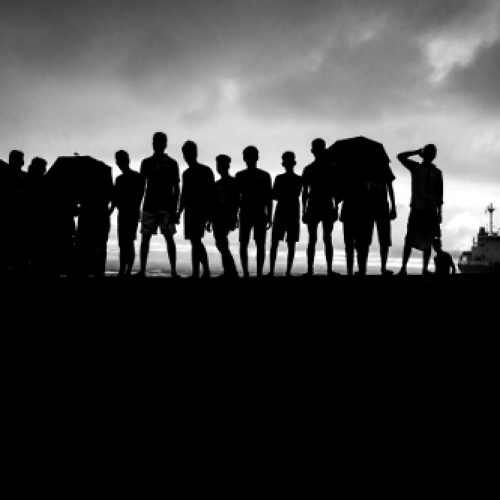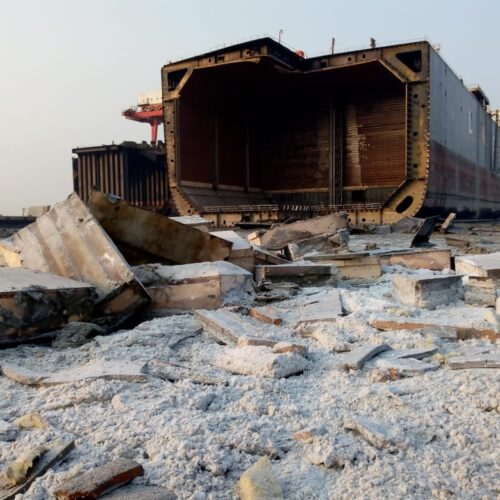Press Release – NGOs release new report on North Sea oil and gas recycling
The NGO Shipbreaking Platform released today a research report titled “Recycling Outlook: Decommissioning of North Sea Floating Oil & Gas Units” during a seminar held in Oslo, Norway.
With the oil and gas sector seeing a downturn since 2014, the Platform has documented an increasing number of offshore units sold for scrap. While the recycling of fixed installations occurs under strict regulations, there are serious concerns regarding the recycling of floating structures, which classify as vessels. Around 200 floating structures have been identified as scrapped globally since 2015 – an estimated 40% of these assets ended up on South Asian beaches, where they were broken up under conditions that cause irreparable damage to the coastal environment and put workers’ lives and health at risk.
Numerous floating platforms and oil and gas structures can be found in the North Sea, where the global oversupply in the rig-market is pushing the oldest assets to be scrapped. There are currently 59 floating mobile drilling rigs in the North Sea, 18 of which were built before 2001. Whilst some of the older units might be converted/upgraded, it is estimated that most of them will be scrapped in the coming years. So far, the only structure which operated in the North Sea and has been traced to a South Asian beaching yard is the FPSO North Sea Producer. There is a real risk, however, that we will see more of these cases coming up in the near future with more decommissioning projects in the North Sea.
The NGO Shipbreaking Platform advocates for the use of green recycling capacity already existing in the region. Indeed, North Sea recycling yards have years of experience decommissioning fixed oil and gas structures. There are several dry docks and contained slipway facilities where the dismantling of floating structures can take place safely and with due regard for labour and environmental concerns. Ehancing the recycling of offshore structures and ships in Europe would furthermore bring opportunities for the many workers that were laid off after the recession in the oil and gas sector in 2014.
The report was published with the support of Norwegian pension fund KLP. KLP promotes, as an essential part of its responsibility, practices of corporate responsibility and responsible investment. As a large investor in Norwegian companies, and companies based outside of Norway operating in the North Sea, it strives to ensure the responsible recycling of ships and offshore assets, aiming at contributing to a shift towards better practices in the sector.
Related news

Platform News – ‘With Bare Hands’: an immersive journey into the problems of shipbreaking
International media outlets publish ‘With bare hands’, the first multimedia and data-driven reporting project that documents the negative impacts on the environment and the human costs of… Read More

Press Release – NGOs and trade unions denounce certification issued to PHP yard by classification society RINA
In October, the PHP Family (Peace Happiness and Prosperity) shipbreaking yard received a Statement of Compliance with the Hong Kong Convention [1] by the Italian classification society… Read More

Press Release – Platform publishes list of ships dismantled worldwide in 2019
674 large ocean-going commercial vessels were sold to the scrap yards in 2019. Of these vessels, 469 were broken down on tidal mudflats in South Asia.
... Read More
Platform News – NGOs distribute emergency food to shipbreaking workers in Bangladesh
Thanks to the financial support received via donations, we managed to distribute food and personal protective equipment items to 130 shipbreaking workers’ families.
... Read More
Platform publishes South Asia Quarterly Update #29
Thirteen workers suffered an accident on South Asian beaches in the first quarter of 2022.
... Read More
Platform publishes South Asia Quarterly Update #21
There were a total of 166 ships broken in the first quarter of 2020. Of these, 126 ships were sold to the beaches of South Asia for dirty and dangerous breaking.
... Read More







